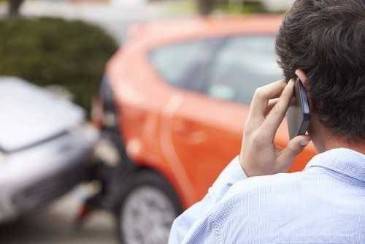Ridesharing services have transformed the way we travel, offering convenience and accessibility to millions of people. However, with the rise of rideshare companies like Uber and Lyft, there has also been an increase in rideshare-related accidents. If you find yourself injured in a rideshare accident in Florida, understanding the legal process of filing a lawsuit is crucial. In this article, we will delve into the essential requirements and steps involved in pursuing a rideshare accident lawsuit in the state of Florida.
Determining Liability in Rideshare Accidents
The first step in pursuing a rideshare accident lawsuit is determining liability. Unlike traditional car accidents, rideshare accidents can involve multiple parties, including the rideshare driver, the rideshare company, other drivers, and even pedestrians. Florida operates under a comparative negligence system, which means that fault can be assigned to multiple parties based on their percentage of responsibility. To establish liability, the following factors are considered:
Rideshare Driver’s Status: The rideshare driver’s status at the time of the accident is crucial. If the driver was actively transporting a passenger or was en route to pick up a passenger, the rideshare company’s insurance policy typically covers the accident. If the driver was off-duty, their personal insurance policy may come into play.
Negligence: Negligence on the part of the rideshare driver or other involved parties must be proven. This can include actions such as distracted driving, speeding, or disobeying traffic laws.
Filing a Lawsuit: Essential Steps
Once liability is established, you can proceed with filing a rideshare accident lawsuit. The legal process involves several key steps:
Seek Medical Attention: Your health is the top priority. Seek medical attention immediately after the accident, even if your injuries seem minor. Medical records will play a crucial role in documenting your injuries and building your case.
Consult an Attorney: It’s highly recommended to consult a personal injury attorney experienced in rideshare accident cases. An attorney will guide you through the process, assess your case’s strength, and help you understand your legal rights.
Gather Evidence: Collect as much evidence as possible to support your claim. This includes accident reports, witness statements, photographs of the accident scene, and any available video footage.
Negotiations and Settlement: In many cases, your attorney will negotiate with the rideshare company’s insurance provider for a fair settlement. If a settlement is reached, your case may be resolved without going to trial.
Litigation: If a settlement cannot be reached, your attorney may file a lawsuit on your behalf. This initiates the litigation process, which involves presenting evidence, depositions, and legal arguments in court.
Requirements for Filing a Rideshare Accident Lawsuit in Florida
To file a rideshare accident lawsuit in Florida, certain requirements must be met:
Statute of Limitations: Florida has a statute of limitations that restricts the time frame within which you can file a lawsuit. Generally, you have four years from the date of the accident to initiate legal action. Failing to file within this time period may result in your case being dismissed.
No-Fault Insurance: Florida is a no-fault insurance state, which means that your own insurance company typically covers your medical expenses and lost wages regardless of who was at fault. However, if your injuries meet certain criteria, you may be able to step outside the no-fault system and pursue a lawsuit against the at-fault party.
Serious Injuries: To step outside the no-fault system, your injuries must meet the “serious injury” threshold, as defined by Florida law. These injuries may include significant disfigurement, permanent limitations, or permanent injuries.
Factors Influencing Compensation
When pursuing a rideshare accident lawsuit in Florida, it’s important to understand the factors that can influence the compensation you may receive:
Medical Expenses: Compensation typically covers medical expenses related to your injuries, including hospital bills, surgeries, medication, rehabilitation, and ongoing medical care.
- Lost Wages and Earning Capacity: If your injuries prevent you from working, you may be entitled to compensation for lost wages. Additionally, if your earning capacity is permanently diminished due to the accident, you may receive compensation for future lost income.
- Pain and Suffering: Compensation may also include damages for physical pain, emotional distress, and mental anguish caused by the accident and your injuries.
- Property Damage: If your vehicle or personal property was damaged in the accident, you may be entitled to compensation for repair or replacement costs.
- Wrongful Death: In tragic cases where a rideshare accident results in the loss of a loved one, surviving family members may pursue a wrongful death claim to seek compensation for funeral expenses, loss of financial support, and emotional suffering.
Being involved in a rideshare accident can be a daunting experience, but understanding the legal process of filing a lawsuit in Florida can provide you with a sense of direction. From determining liability to meeting the state’s requirements, each step is crucial to securing the compensation you deserve for your injuries and losses. Consulting an experienced personal injury attorney is key to navigating this complex process and ensuring your rights are protected.
If you’ve been injured in a rideshare accident in Florida, don’t hesitate to reach out to us at Serrano Law. Our dedicated team of legal professionals is here to guide you through every step of the legal process, ensuring that your rights are upheld and you receive the compensation you deserve. Contact us today for a free consultation and let us fight for your rights in your rideshare accident case.
